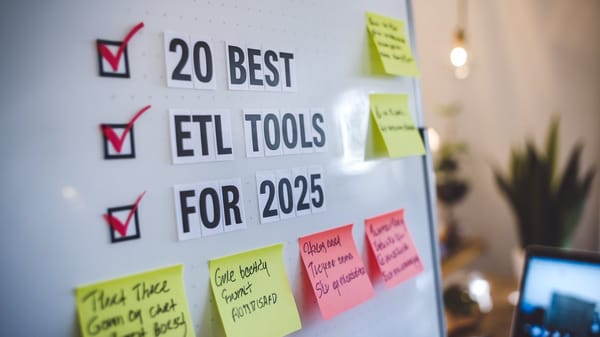Project Management: The Basics for Success

Project management is a critical discipline that involves planning, executing, and overseeing projects to achieve specific goals within defined constraints. As organizations increasingly rely on projects to drive innovation and achieve strategic objectives, understanding the fundamentals of project management has become essential for professionals across various industries.
The essence of project management lies in its ability to organize and control the myriad moving parts of a project, ensuring successful completion. This involves a comprehensive understanding of project management principles, methodologies, and tools. According to ProjectManager.com, a project is defined as a sequence of tasks aimed at achieving a singular goal, with specific boundaries such as time, resources, and personnel.
The foundational principles of project management, as outlined by ClickUp, include defining a project, establishing a clear project structure, and setting measurable objectives. These principles serve as a compass, guiding project managers through the complexities of project execution and ensuring alignment with organizational goals.
Courses like "Project Management: The Basics for Success" offered by the University of California, Irvine on Coursera provide a flexible learning environment to grasp these essential skills. Such courses are designed to cater to both beginners and those looking to refresh their knowledge, offering insights into key project management concepts and practices.
Moreover, the PM Basics Course emphasizes the importance of bridging theory and practice, equipping learners with the confidence to manage projects effectively. This course covers traditional project management methodologies while introducing agile and hybrid approaches, ensuring participants are well-prepared for modern project management challenges.
You can also visit Oncely.com to find more Top Trending AI Tools to improve your project management success rate. Oncely partners with software developers and companies to present exclusive deals on their products. These deals often provide substantial discounts compared to regular pricing models, making it an attractive platform for individuals and businesses looking to access quality tools and services at more affordable rates.
Some common types of products and services featured on Oncely include a wide range of software tools across various categories, including productivity, marketing, design, development, project management, and more. Examples include project management platforms, SEO tools, social media schedulers, email marketing software, website builders, and graphic design tools.
One unique aspect of Oncely is its “Lifetime Access” feature, where customers can purchase a product once and gain ongoing access to it without any recurring fees. However, it’s important to note that the availability of lifetime access may vary depending on the specific deal and terms offered by the software provider.
Oncely also provides a 60-day money-back guarantee on most purchases, allowing customers to try out the products and services risk-free.
Oncely are hunting for the most fantastic AI & Software lifetime deals like the ones below or their alternatives:

In summary, mastering the basics of project management is crucial for anyone looking to lead successful projects. By understanding the core principles, methodologies, and tools, professionals can enhance their ability to deliver projects that meet or exceed expectations, thereby contributing to their organization's success.
Table of Contents
Understanding Project Management Basics
- Definition and Core Concepts
- Key Components of Project Management
- Project Lifecycle Phases
- Project Management Methodologies
- Essential Skills for Project Managers
- Conclusion
Key Concepts and Tools in Project Management
- Project Definition and Objectives
- Project Management Tools
- Core Project Management Concepts
- Project Management Methodologies
- Essential Project Management Skills
Practical Applications and Skills Development in Project Management
- Bridging Theory and Practice
- Essential Skills for Effective Project Management
- Continuous Improvement and Skills Development
- Leveraging Technology and Tools
- Collaborative Teamwork and Leadership
Definition and Core Concepts
Project management is a structured approach to planning, executing, and overseeing projects to achieve specific goals within defined constraints. According to the Project Management Institute, a project is a temporary endeavor aimed at creating value, characterized by a defined beginning and end, scope, and resources. The core components of project management include scope, time, and cost management, which are essential for ensuring that projects are completed on time, within budget, and to the required quality standards.
Key Components of Project Management
- Scope Management: This involves defining and controlling what is included and excluded from the project. A clear scope statement is crucial to prevent scope creep, which can lead to project delays and budget overruns. Tools like the Work Breakdown Structure (WBS) help in organizing and assigning responsibilities by breaking down the project into manageable tasks.
- Time Management: Effective time management ensures that project tasks are completed within the set deadlines. Techniques such as the Critical Path Method (CPM) are used to identify the longest sequence of dependent tasks and calculate the minimum project duration. Gantt charts are also popular tools for visualizing the project schedule, including tasks, durations, and dependencies.
- Cost Management: This involves budgeting and controlling costs to ensure the project is completed within the approved budget. Cost management includes estimating costs, determining the budget, and controlling costs throughout the project lifecycle.
Project Lifecycle Phases
The project lifecycle consists of several phases that guide the project from initiation to closure. These phases include:
- Initiation: This phase involves defining the project at a high level and obtaining authorization to proceed. It includes identifying stakeholders and setting initial project goals.
- Planning: Detailed planning is conducted to outline how the project will be executed, monitored, and controlled. This phase involves developing a project management plan that covers scope, schedule, cost, quality, resources, communication, risk, and procurement.
- Execution: During this phase, the project plan is put into action, and the project deliverables are developed. Effective team management and communication are crucial to ensure that tasks are completed as planned.
- Monitoring and Controlling: This phase involves tracking project performance and making necessary adjustments to ensure the project stays on track. Key performance indicators and success criteria are used to measure progress.
- Closure: The final phase involves completing all project activities, obtaining formal acceptance of the project deliverables, and closing out the project. Lessons learned are documented for future reference.
Project Management Methodologies
Various methodologies are used in project management to provide a structured approach to managing projects. Some of the most common methodologies include:
- Traditional (Waterfall) Methodology: This linear approach involves completing each project phase before moving on to the next. It is suitable for projects with well-defined requirements and a clear scope.
- Agile Methodology: Agile is an iterative approach that focuses on delivering small, incremental improvements to the project deliverables. It is ideal for projects with rapidly changing requirements and emphasizes collaboration and flexibility.
- Hybrid Methodology: This approach combines elements of both traditional and agile methodologies to provide a flexible framework that can adapt to the specific needs of the project.
Essential Skills for Project Managers
Project managers require a diverse set of skills to effectively manage projects. These skills include:
- Leadership and Team Management: Project managers must be able to lead and motivate their teams to achieve project goals. This involves setting clear expectations, providing feedback, and resolving conflicts.
- Communication: Effective communication is crucial for ensuring that all stakeholders are informed and engaged throughout the project. Project managers must be able to convey information clearly and listen actively to stakeholder concerns.
- Risk Management: Identifying and managing risks is essential for preventing potential issues from derailing the project. Project managers must be able to assess risks, develop mitigation strategies, and monitor risk factors throughout the project lifecycle.
- Problem-Solving and Decision-Making: Project managers must be able to analyze complex situations, identify potential solutions, and make informed decisions to keep the project on track.
- Technical Skills: Depending on the industry, project managers may require specific technical skills to understand the project requirements and effectively manage the project team.
Conclusion
Understanding the basics of project management is essential for successfully managing projects. By mastering the core concepts, methodologies, and skills outlined in this report, project managers can effectively plan, execute, and oversee projects to achieve desired outcomes. For further reading and resources, consider exploring courses and materials from platforms like Coursera and Project Management PrepCast.
Project Definition and Objectives
A project is defined as a temporary endeavor undertaken to create a unique product, service, or result. It is characterized by its temporary nature, having a defined beginning and end, and is undertaken to meet specific goals and objectives (ProjectManager). The primary objective of project management is to achieve all project goals within the given constraints, which typically include scope, time, and budget (Wrike).
Project Management Tools
Project management tools are essential for planning, executing, and monitoring projects. These tools help in organizing tasks, managing resources, and ensuring that projects are completed on time and within budget. Some of the most commonly used project management tools include:
- Gantt Charts: These are visual representations of a project schedule, showing the start and finish dates of the various elements of a project. Gantt charts are useful for tracking project timelines and dependencies (Wrike).
- Kanban Boards: These are used to visualize work, limit work-in-progress, and maximize efficiency. Kanban boards help teams manage workflow and improve productivity by providing a clear view of tasks and their progress (Wrike).
- Project Management Software: Tools like ProjectManager and ClickUp offer comprehensive solutions for managing projects. They provide features such as task management, time tracking, collaboration, and reporting (ProjectManager, ClickUp).
Core Project Management Concepts
Understanding core project management concepts is crucial for successful project execution. These concepts include:
- Scope Management: This involves defining and controlling what is included and excluded in the project. Proper scope management ensures that all project work is aligned with the project objectives and prevents scope creep (MatrixFlows).
- Time Management: Effective time management involves planning and controlling the amount of time spent on specific project activities. It includes creating a project schedule, setting deadlines, and ensuring that tasks are completed on time (KolApp).
- Cost Management: This involves estimating, budgeting, and controlling costs to ensure that the project can be completed within the approved budget. Cost management is essential for maintaining financial control over the project (MatrixFlows).
- Quality Management: Ensuring that the project meets the required quality standards is a critical aspect of project management. Quality management involves planning, assurance, and control activities to achieve the desired quality outcomes (MatrixFlows).
- Risk Management: Identifying, analyzing, and responding to project risks is essential for minimizing their impact on the project. Risk management involves developing strategies to mitigate potential risks and ensure project success (TeamHub).
Project Management Methodologies
Project management methodologies provide structured approaches to managing projects. Some of the most popular methodologies include:
- Waterfall: A linear and sequential approach where each phase of the project must be completed before the next one begins. It is best suited for projects with well-defined requirements and minimal changes (ClickUp).
- Agile: An iterative and incremental approach that emphasizes flexibility and customer collaboration. Agile methodologies, such as Scrum and Kanban, are ideal for projects with rapidly changing requirements (DeeProjectManager).
- Hybrid: A combination of Waterfall and Agile methodologies, allowing for a more flexible approach to project management. Hybrid methodologies are useful for projects that require both structured and adaptive processes (DeeProjectManager).
Essential Project Management Skills
Successful project managers possess a range of skills that enable them to lead teams and manage projects effectively. These skills include:
- Leadership: The ability to inspire and motivate team members to achieve project goals. Effective leadership involves setting a vision, providing direction, and fostering a positive team environment (TeamHub).
- Communication: Clear and effective communication is essential for ensuring that all stakeholders are informed and aligned with the project objectives. Good communication helps prevent misunderstandings and facilitates collaboration (KolApp).
- Problem-Solving: The ability to identify and resolve issues that arise during the project. Problem-solving skills are crucial for overcoming obstacles and ensuring project success (KolApp).
- Time Management: The ability to prioritize tasks and manage time effectively to meet project deadlines. Time management skills help project managers allocate resources efficiently and keep the project on track (KolApp).
- Risk Management: The ability to anticipate and mitigate potential risks that could impact the project. Risk management skills are essential for minimizing disruptions and ensuring project success (TeamHub).
By understanding and applying these key concepts and tools, project managers can effectively plan, execute, and monitor projects, ensuring successful outcomes and achieving project objectives.
Bridging Theory and Practice
Project management is a discipline that requires the integration of theoretical knowledge with practical application to achieve successful project outcomes. The practical implementation of project management skills involves applying learned concepts to real-world scenarios, effectively managing projects from initiation to closure. This approach ensures that project managers can plan, execute, and oversee projects to meet specific goals within given constraints (Smart Life Skills).
Real-World Application
Applying project management principles to real projects is crucial for developing practical skills. This involves creating project plans, developing schedules, tracking progress, and managing risks. Engaging in project reviews allows project managers to reflect on lessons learned and identify areas for improvement (Software Suggest). By actively participating in these processes, project managers can enhance their ability to manage resources efficiently and monitor project outcomes.
Essential Skills for Effective Project Management
- Hard skills in project management include technical expertise such as project planning, budgeting, and risk management. These skills provide the necessary foundation for managing projects effectively. For instance, project planning involves defining project scope, creating realistic schedules, and allocating resources appropriately (Project Management). These skills ensure that projects are completed efficiently, meeting deadlines and objectives.
- Soft skills are equally important in project management. They include leadership, communication, conflict resolution, and adaptability. Effective communication and active listening are crucial for fostering a collaborative environment where ideas are heard, and concerns are addressed promptly (Hubstaff). Leadership skills enable project managers to guide teams, engage stakeholders, and build relationships that contribute to a positive project environment.
Continuous Improvement and Skills Development
- Embracing Continuous Learning: Continuous improvement is a key aspect of project management. Project managers should regularly assess their performance, solicit feedback from colleagues and stakeholders, and identify areas for growth. Setting goals to enhance specific project management skills and seeking opportunities to apply new knowledge and techniques are essential for professional development (Software Suggest).
- Mentorship and Coaching: Mentorship and coaching play a significant role in skills development. Project managers can benefit from mentors or coaches who provide guidance and advice, helping them navigate challenges and learn from the experiences of others. Mentors can be found through professional associations, networking groups, or by reaching out to experienced project managers in one's network (Software Suggest).
Leveraging Technology and Tools
- Project Management Software: Proficiency with project management software is a must-have technical skill for project managers. These tools help reduce silos, increase visibility, and facilitate cross-functional collaboration. Project management software provides features such as project scheduling, resource allocation, and performance tracking, which are essential for effective project management (Project Management).
- Data Analysis and Performance Tracking: Tracking project performance is crucial for assessing progress, identifying areas for improvement, and ensuring alignment with project goals. Establishing key performance indicators (KPIs), tracking project metrics, analyzing performance data, and conducting regular project reviews are essential practices for effective project management (Hubstaff).
Collaborative Teamwork and Leadership
- Building High-Performing Teams: Collaborative teamwork is vital in project management. Engaging in collaborative projects and working closely with colleagues from different disciplines allows project managers to develop interpersonal skills, practice effective communication, and understand the dynamics of working with diverse stakeholders (Software Suggest). By fostering teamwork and actively contributing to discussions, project managers can learn from the expertise of others and enhance team cohesion and productivity.
- Leadership and Influence: Leadership skills are essential for guiding teams and influencing stakeholders. Project managers should seek opportunities to lead teams, engage stakeholders, and build relationships that contribute to a positive project environment. By developing these skills, project managers can effectively navigate challenges, collaborate with stakeholders, and drive project success (Hubstaff).
In summary, the practical application of project management skills involves a combination of hard and soft skills, continuous improvement, leveraging technology, and fostering collaborative teamwork. By integrating these elements, project managers can effectively manage projects and achieve successful outcomes.
References
- https://project-management.com/27-essential-project-management-skills-for-success/
- https://rebelsguidetopm.com/best-coursera-courses-for-pm/
- https://smartlifeskills.ai/lesson-4-practical-implementation-of-project-management-skills/
- https://asana.com/resources/project-management-skills
- https://www.pmi.org/learning/library/life-hacks-apply-pm-skills-everyday-life-10753
- https://www.pmi.org/blog/top-project-management-skills-you-need
- https://www.coursera.org/courses?query=project+management
- https://www.projectmanager.com/blog/project-management-skills
- https://hubstaff.com/blog/examples-project-management-skills/
- https://www.softwaresuggest.com/blog/project-management-skills/
- https://www.amanet.org/improving-your-project-management-skills-the-basics-for-success/
- https://www.pmi.org/shop/p-/elearning/project-management-basics---an-official-pmi-online-course/16125
- https://www.indeed.com/career-advice/career-development/project-management-skills





